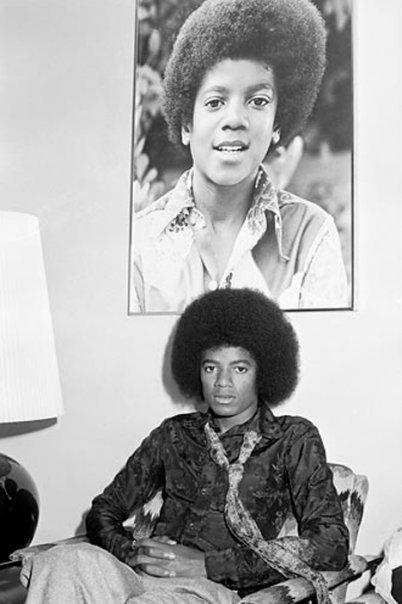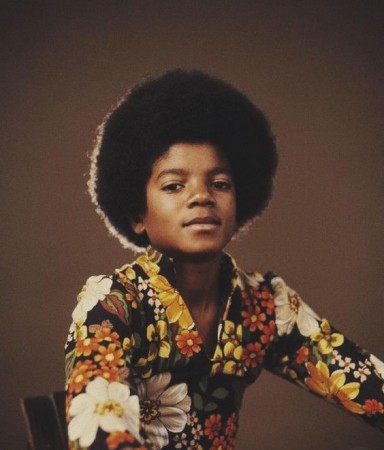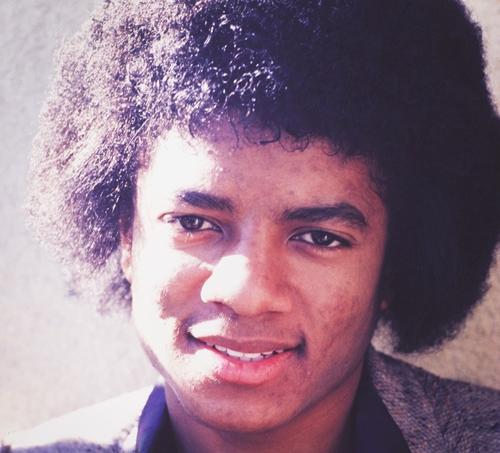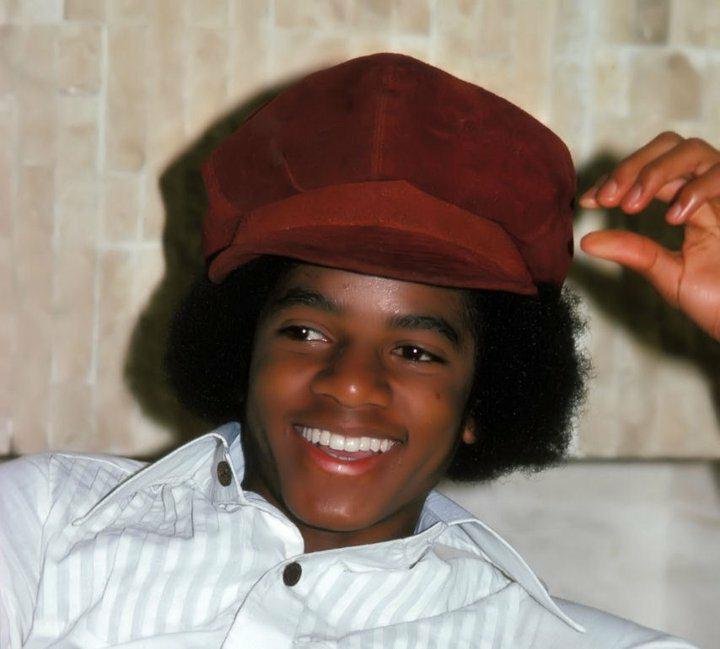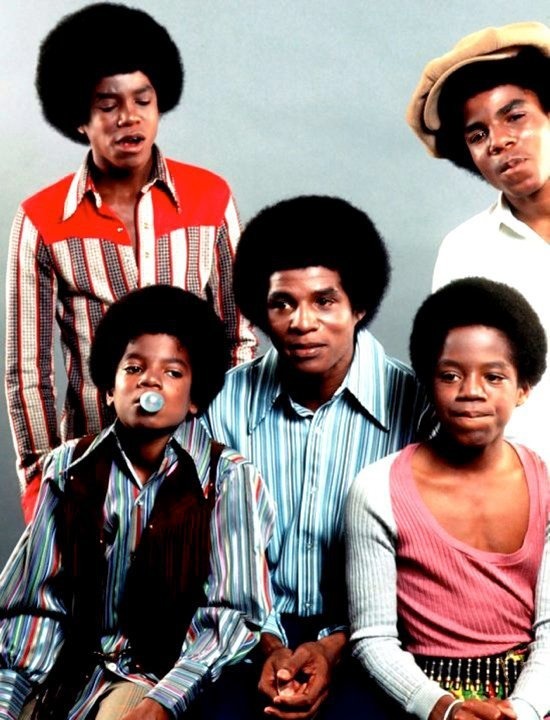Childhood
Michael´s Mother Talks About His Birth
(...) My experience with Marlon and Brandon didn’t dissuade me from getting pregnant again. The following year (1958) August 29, I gave birth to another son.
I remember that day well because my water broke while my neighbor Mildred White and I were driving over to see the new grammar school under construction, Garnett Elementary.
“Oh, my God, Mildred, I can’t sit in your car like this!” I exclaimed.
“Girl, don’t worry about it,” Mildred said, turning the car around.
At my request Mildred drove me home. I called my mother and she and my stepfather drove me to Mercy Hospital.
Shortly after I got there, I began having contractions. Later that night, my son was born.
“I want to name him,” my mother said. I hated her first suggestion: Ronald.
“How about Roy, then?”
“Oh, my gosh, Mama, no.”
She thought for a little while. “I’ve got it—MICHAEL.”
“That’s it,” I said.
By then I was used to seeing my babies born with funny looking heads, so I wasn’t alarmed by Michael’s. The two other things I remember about him as I held him for the first time were his big brown eyes and his long hands, which reminded me of my father-in-law’s.“I bet I was an accident!” Michael has teased. He wasn’t.
Katherine Jackson in her book "My Family"


"My first memories of my Mom are of her holding me and singing songs like 'You Are My Sunshine' and 'Cotton Fields.' She has always had a beautiful voice. I suppose I got my singing ability from my mother - and or course, from God."
"We were a family that sang all the time. We would take the furniture out of the living room and dance. We would have a songwriting competition while we washed the dishes....while we were cleaning. Music was our destiny."
"'There were times when I had great times with my brothers, pillow fights and things, but I was, used to always cry from loneliness."

"Well, especially now I come to realize - and then - I would do my schooling which was three hours with a tutor and right after that I would go to the recording studio and record, and I'd record for hours and hours until it's time to go to sleep."
"Well, you don't get to do things that other children get to do, having friends and slumber parties and buddies. There were none of that for me. I didn't have friends when I was little. My brothers were my friends."
"I remember one time we were getting ready to go to South America and everything was packed up and in the car ready to go and I hid and I was crying because I really did not want to go, I wanted to play. I did not want to go."
"I remember going to the recording studio and there was a park across the street and I'd see all the children playing and I would cry because it would make me sad that I would have to work instead."
Michael Jackson

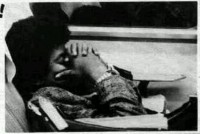
"People wonder why I always have children around. It's because I find the thing that I never had through them. Disneyland, amusement parks, arcade games — I adore all that stuff because when I was little, it was always work, work, work."
Michael Jackson, interview with Oprah Winfrey, 1993
The Jackson Five performing in Gary, Indiana:
 .
.

"When I was little I grew up in an adult world. I grew up on stage. I grew up in night clubs. When I was seven, eight years old I was in nightclubs. I saw striptease girls take off all their clothes. I saw fights break out. I saw people throw up on each other. I saw adults act like pigs. That's why to this day I hate clubs. I don't like going to clubs - I did that already, I've been there. That's why I compensate now for what I didn't do then. So when you come to my house, you'll see I have rides, I have a movie theatre, I have animals. I love animals - elephants and giraffes and lions and tigers and bears, all kinds of snakes. I get to do all those wonderful things that I didn't get to do when I was little, because we didn't have those things. We didn't have Christmas. We didn't have sleepovers. We didn't have school, we had private school when we were touring. I didn't go to a state school. We tried it for two weeks and it didn't work. It was very difficult. It's hard growing up a celebrity child. Very few make that transition from child star to adult star. It's very difficult. I relate to Shirley Temple. I met her in San Francisco and I sat at her table and I cried so bad. She said, 'What's wrong Michael?' I said, 'I love you. I need to be around you more.' She goes, 'You're one of us, aren't you?' and I said 'Yes, I am.' Somebody else said, 'What do you mean?' and she said, 'Michael knows what I mean.' And I know exactly what she meant - to have been there as a child star and to have graduated to have succeeded in making that transition to fame as an adult is very difficult. When you're a child star people don't want you to grow up. They want you to stay little forever. They don't want you to work afterwards. It's very hard."
Michael Jackson in Gold Magazine interview, 2002
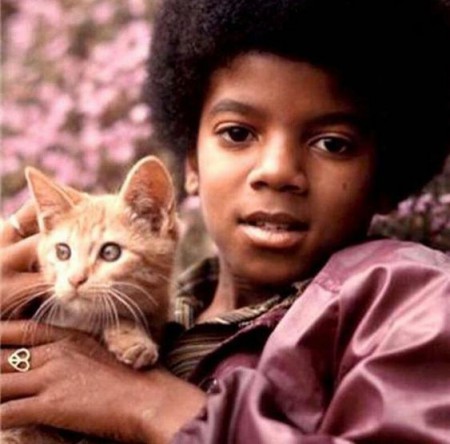
M: I remember, like I told you before, when Marlon and I had to share a room with Jermaine and Bill was asleep. Jermaine would have girls up there all the time screwing and stuff. I always (said I’d never ??) Marlon said the same thing. I felt so guilty when we used to home from the circuit and stuff before we made it, y’know we used to do the club circuits and stuff. I felt so guilty, and I just cried and Joseph choked me, almost broke my arm one day. But he was proud of it. It’s like, (joseph’s voice) “Oh, this is what you should do, boy.” I mean, he didn’t say that but he was screwin’ women in the other room and stuff.
From Glenda Tapes
"I don´t like clubs now, I did all that when I was eleven, eight and going back - nine, eight, seven, six. Fights break out, people throwing up, yelling, screaming, the police sirens. Our father never let us become a part of it other than to perform and leave. But sometimes in having to do that you would get caught up in some of the craziness. I saw it all. The lady who came on right before, when The Jacksons were little.´And now next, the little Jackson 5´, was the lady who took off all her clothes. Threw her panties into the audience and the men would grab them and sniff them. I saw all this. Her name was Rose Marie and she put these things on her breasts and moved them around and she showed everything. So when I became sixteen, seventeen, and guys would say: ´Let´s go clubbing,´ I would go, ´Are you crazy?´ And the guys were like, ´No, are you crazy? We can get girls, we can get liquor.´ But I had done that. I did that when I was baby. Now I want to be a part of the world and the life I didn´t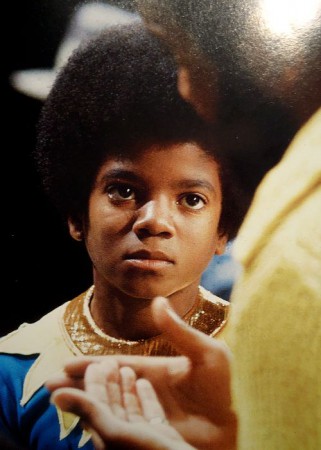 have. Take me to Disneyland, take me to where magic is."
have. Take me to Disneyland, take me to where magic is."
Michael Jackson in MJ Tapes
"When I was a kid, I was denied not only a childhood, but I was denied love. When I reached out to hug my father, he didn't hug me back. When I was scared on an airplane, he didn't put his arm around me and say, ´Michael, don't worry. It's going to be OK.´ When I was scared to go on stage, he said, ´get your ass on that stage.´ … I will never deny a child love. If it means that I have to be crucified or put in jail for it, then that's just what they're going to have to do.
Michael Jackson in remark to producer Cory Rooney, as repeated to Chris Yandek (https://thesportsinterview.com/mjackson.html)
"In those days, our father was clearly the boss. Mother almost never intervened, but shook her head and lamented, "That Joseph, he's so crazy." You could see in her eyes that she pitied us for fearing our father so. But it would be years before I understood how unusual her attitude was. What makes Mother's resigned acceptance of Joseph's brutality more confusing is that she grew up in a loving home. Certainly she knew her husband was wrong.
For whatever reason, she never stopped him and rarely voiced any strong disagreement. Instead, she tried to make up for his meanness by bending the household rules in his absence. With Joseph at work, she sometimes let us out to play provided we got back before he returned home and no one breathed a word about the infraction. I usually stayed inside with her and Rebbie, playing with my doctor's kit or Barbie doll, or being a little helper. Just before Joseph was due, Mother dispatched me to find my brothers. We'd run down the street, calling, "Tito! Jermaine! Jackie! Mike! Marlon! Come home!" I couldn't stand the thought of any of them getting the switch.
Each day, waiting for our father's Buick to pull up out front was like bracing for a storm. Either he would be in a good mood or he would explode. We never knew, but we always feared. That persistent fear clouded every moment. At a time when most children are carefree, we were anxious. That we couldn't trust our own father made it hard for us to trust anyone but one another and, of course, Mother.
We had no choice but to obey Joseph's demand of respect. Still, it was very hard for any of us to truly love him. Now I see what a tragedy that was, for all of us, but there was no way then we could know that other kids' lives were different. To us, fathers were cold and mean; mothers, warm and loving. That's just how it was. The few times we did get to visit friends, we left as soon as their dads came home, Michael shooting me a nervous glance and blurting. "We've gotta go!"
They must have thought we were so strange. It took us a long time to grow comfortable around other fathers. I remember how Michael and I were absolutely stunned the first time we saw a man display affection to his children. AIl the way home we couldn't stop exclaiming, "Did you see that?
The way he kissed and hugged his kids!
"Yeah. How weird!"
...
All children need to feel worthy and loved, but our father shattered our self-confidence and self-esteem by the time we were old enough for school. Not surprisingly, none of us ever mustered the courage (the foolhardiness?)
to defend ourselves against him. Except Michael.
Mother used to say that from the time he was born, Michael as "different'": quick to walk and talk, and unusually well coordinated for his age. She's made it a point never to boast about any of us, but of Michael my mother would allow, "I don't want to say he's gifted, but I know there's something special about him." Bright-eyed, with an impish smile, Michael was a scamp, an inexhaustible ball of energy. Though never bossy, he was a natural leader.
...
Even then, Michael had clear ideas about the brothers act and its presentation. If they were shooting promotional photos, the six-year-old posed everyone, instructing in his peep of a voice, "Okay, Jackie, you stand here, this way. Jermaine, you'll be next to Jackie, but like
this." No detail escaped his eye. Mother used to hold up for them the stage outfits she'd sewn a purple two-piece suit; black pants with white shirts and the youngest of the five pointed and declared. "These." And he was always right.
Spirited and supremely confident as a child, Michael was the only one of us who ever hit Joseph back. Whenever my father raised a hand in anger, everyone else stood still and braced for the blow. Michael raced off. "When I get you. "Joseph growled, but he couldn't catch him.
Michael was so fast, he could pause to fling a shoe at Joseph, and still elude him. Michael talked back and always had to get in the last lick, even if it meant another beating. Cringing, the rest of us wondered, Why doesn't Mike quit while he's ahead? He's only making it worse for himself. Secretly, my brothers, my sisters, and I admired his fearlessness.
La Toya Jackson
Rose Fine, Michael´s beloved tutor and motherly figure:
Q: Rose Fine, although she wasn’t your biological mother, was able to show you a lot of motherly affection?
MJ: And boy did I need it. I was never with my mother when I was little, very seldom, and I had a wonderful mother. I see her as an angel, and I was always gone, always on tour, doing back-to-back concerts, all over America, overseas, clubs, just always gone. [Rose Fine] was with us all the way from the very first professional tour of the Jackson 5 until I was eighteen.
MJ: After the show I would run into [Rose Fine’s] room. We’d read and have warm milk and I needed that so badly. She would always say to me, “The door’s open”, and she would leave her door open.
MJ: She called me her son. Whenever you go on the plane, you see these seven little black kids and a black father, all got big Afros, and this old white Jewish woman would be in the back. They would stop her and go, "Who are you?" She would say, "I´m the mother." She would say it every time and they would let her go. Sweet story. She was special. I needed her.
MJ: Rose died this year (2000), Janet and myself, we paid for her nurse and her hospital care, or if her television broke down or the electricity, or there was anything wrong with the house, we would cover the bills. Now her husband is sick, so I am taking care of him, and because we felt she is our mother and you take care of your mother… She was more than a tutor and I was so angry at myself that when she died I was far, far away. I couldn’t get there.
From MJ tapes. Below is the picture of Rose Fine and Jackson brothers
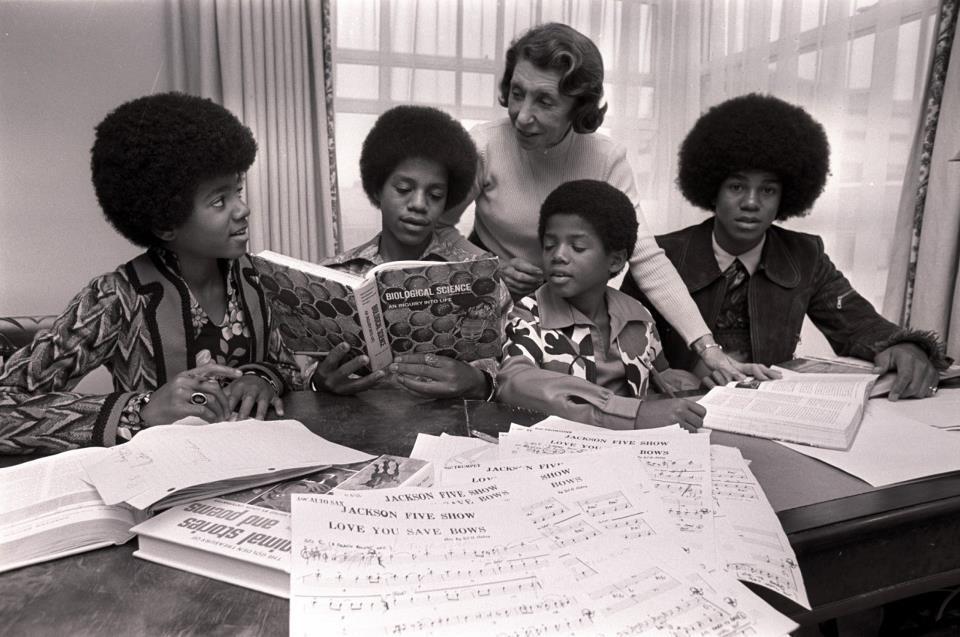
Here is the link to the song Seeing Voices that was written by Rose Fine´s husband, Sidney. It´s about their son who died young and was also deaf. Michael Jackson sang the song in 1999: Behind The Scenes of Seeing Voices - Michael Jackson and Sidney Fine
"I would do my schooling which was three hours with a tutor and right after that I would go to the recording studio and record and I'd record for hours and hours until it's time to go to sleep."
Michael Jackson
"When people see the television appearances I made when I was a little boy — 8 or 9 years old and just starting off my lifelong music career — they see a little boy with a big smile. They assume that this little boy is smiling because he is joyous, that he is singing his heart out because he is happy, and that he is dancing 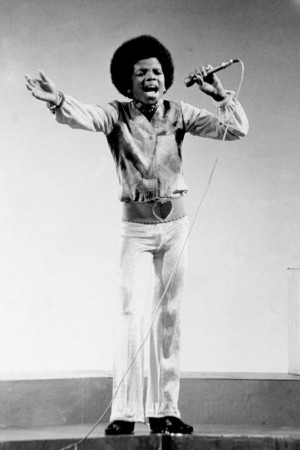 with an energy that never quits because he is carefree.
with an energy that never quits because he is carefree.
But while singing and dancing were, and undoubtedly remain, some of my greatest joys, at that time what I wanted more than anything else were the two things that make childhood the most wondrous years of life, namely, playtime and a feeling of freedom. The public at large has yet to really understand the pressures of childhood celebrity, which, while exciting, always exacts a very heavy price.
More than anything, I wished to be a normal little boy. I wanted to build tree houses and go to roller-skating parties. But very early on, this became impossible. I had to accept that my childhood would be different than most others. But that’s what always made me wonder what an ordinary childhood would be like."
Michael Jackson in his reflection "My Childhood, My Sabbath, My Freedom," December 2000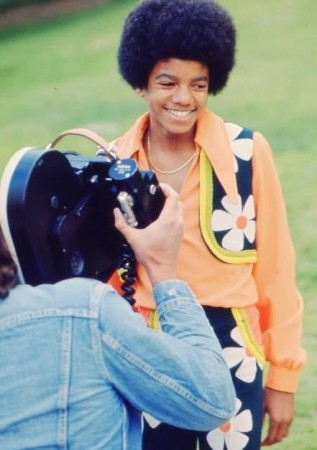
"My childhood was completely taken away from me. There was no Christmas, there were no birthdays, it was not a normal childhood, nor the normal pleasures of childhood — those were exchanged for hard work, struggle and pain and eventually material and professional success. But as an awful price, I cannot re-create that part of my life.
However, today, when I create my music, I feel like an instrument of nature. I wonder what delight nature must feel when we open our hearts and express our God-given talents. The sound… of approval rolls across the universe, and the whole world abounds in magic. Wonder fills our hearts, for what we have glimpsed, for an instant, the playfulness of life.
And that’s why I love children and learn so much from being around them. I realise that many of our world’s problems today — from the inner city crime, to large scale wars and terrorism, and our overcrowded prisons — are a result of the fact that children have had their childhood stolen from them. The magic, the wonder, the mystery, and the innocence of a child’s heart, are the seeds of creativity that will heal the world. I really believe that.
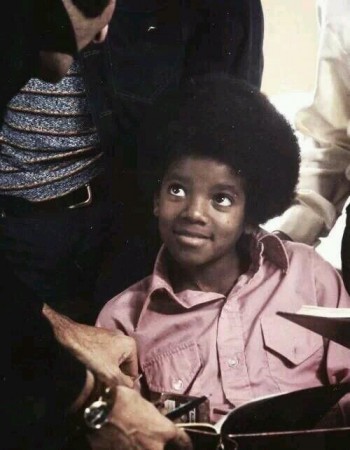 What… what we need to learn, what we need to learn from children isn’t childish. Being with them connects us to the deeper wisdom of life which is everpresent, and only asks to be lived. They know the solutions that lie waiting to be recognised within our own hearts. Today, I would like to thank all the children of the world, including the sick and deprived… I am so sensitive to your pain."
What… what we need to learn, what we need to learn from children isn’t childish. Being with them connects us to the deeper wisdom of life which is everpresent, and only asks to be lived. They know the solutions that lie waiting to be recognised within our own hearts. Today, I would like to thank all the children of the world, including the sick and deprived… I am so sensitive to your pain."
Michael Jackson´s speech at Grammy Awards, 1993
"But, if you really want to know about me, there is a song I wrote which is the most honest song I've ever written. It is the most autobiographical song I've ever written. It's call CHILDHOOD."
Michael Jackson
"Our personal history begins in childhood and the song 'Childhood' is a reflection of my life. It's about the pain, some of the joys, some of the dreaming, some of the mental adventures that I took because of the different lifestyle I had, in being a child performer. I was born on stage and Childhood, it's my mirror. It's my story."
Michael Jackson
M: I was the one who would fight back when I was little. He’d try to beat me and stuff like that. You know, if I sang the wrong – I didn’t do something right or I did the wrong dance step, you know the wrong move. And I would argue back and I would fight back.
G: And all of your big brothers just sit there and watch?
M: yeah, they were scared of him. And I threw a show at him and stuff.
G: laughs
M: and I’d run like HELL! And he couldn’t catch me, you know?
G: laughs
M: And then when I went to sleep and stuff ‘cause, we you know, we were (I)
G: (something bangs, muffling noises) Hold on, I was trying to take these jeans off and I dropped the phone, I’m sorry, laughs
M: (Can I get into them?)
G: laughs, No wait a minute, I’m going to pick them up off the floor. Hold on, okay, go ahead.
M: Okay, My brothers used to say I was crazy. And I was little. And I would always fight Joseph back, and oh my god, I would get my ass beat. And then I used to run and I threw a show at him and run like hell.
G: laughs
M: and he knocked me down on the floor one time ‘cause we were rehearsing in our living room. I did somethin’ wrong. He knocked the MESS out of me. And we were supposed to perform somewhere the next day. And he knocked me down so hard, I lost the wind, I lost my wind, right? And I was just little
G: Mhm
M: so I got up, I was so serious. They talk about me being conceited now, you know?
G: Mhm.
M: I got up and I was crying and stuff. And I said, “Joseph, if you hit me again. I’m not performing!”
G: laughs
M: he’s like, “what the fuck did you say?”
G: (gasps)
M: I’m like, “You hit me again, Joseph” – and I couldn’t, I wasn’t even nine years old, I was probably just about seven. I said, Joseph if you hit me again and I was crying my eyes out, I said if you hit me again I am NOT performing.
G: sympathetic sigh
M: And he left me alone. I said I’m not doing the show! He said, “don’t you know I will kick your MF ass! And all this and that,” and I got up, the wind was knocked out of me. And I said, you hit me again and I won’t perform. And he knew I was the star performer. laughs
G: haha, yeah really!
M: and he didn’t hit me
G: well, you had some leverage there (laughs)
M: My brothers used to say, “Mike you crazy man, you crazy.” And then when I would go to sleep at night he would see that I was scared. He would be banging on our windows and stuff and open the windows like he was going to break in and stuff
G: That’s horrible, that’s an awful thing for-
M: You read about that in the book, you read it.
G: oh, Michael it’s been a while since I’ve read that book, I don’t remember everything.
M: He used to scare us when we were little. When we were asleep and we had to get up early in the mornings. We had to have rehearsals before we went to school. God, and he banged on the windows and we looked out the windows and he had a monster mask on (G gasps) and “Mother, mother, mother, there’s a monster!”
G: how horrible
M: and we’d get in trouble for crying
G: that’s awful. That’s really sick and twisted. I can’t even relate to somebody that does stuff like that. But it didn’t affect your brother’s the same way it did you, huh?
M: Well… (silence)I seen my brothers, you know, when we were traveling and stuff and doing the circuit and all that. Joseph would be in another room messing with a girl and it was obvious they were having sex
M: I know… but I didn’t wanna tell mother, and Marlon and I didn’t wanna tell them but.. all my brothers kind of just… did the same thing, so, Joseph…
G: Are any of your brothers still married? Or isn’t everybody married right now?
M: Well, they broke up but, Marlon and Carol have been, they’re trying to work it out. I admire Carol because Marlon was gonna divorce her but she still wanted to make it work
G: And Jermaine, what is he doing?
M: Oh GOD…
G: laughs
M: I remember, like I told you before, when Marlon and I had to share a room with Jermaine and Bill was asleep. Jermaine would have girls up there all the time screwing and stuff. I always (said I’d never be like that??) Marlon said the same thing. I felt so guilty when we used to home from the circuit and stuff before we made it, y’know we used to do the club circuits and stuff. I felt so guilty, and I just cried and Joseph choked me, almost broke my arm one day. But he was proud of it. It’s like, (Joseph’s voice) “Oh, this is what you should do, boy.” I mean, he didn’t say that but he was screwin’ women in the other room and stuff.
G: What an awful thing to witness. From your father, your role model. (sighs) Especially doing stuff to your mom. What an awful thing.
Phone conversation with Glenda
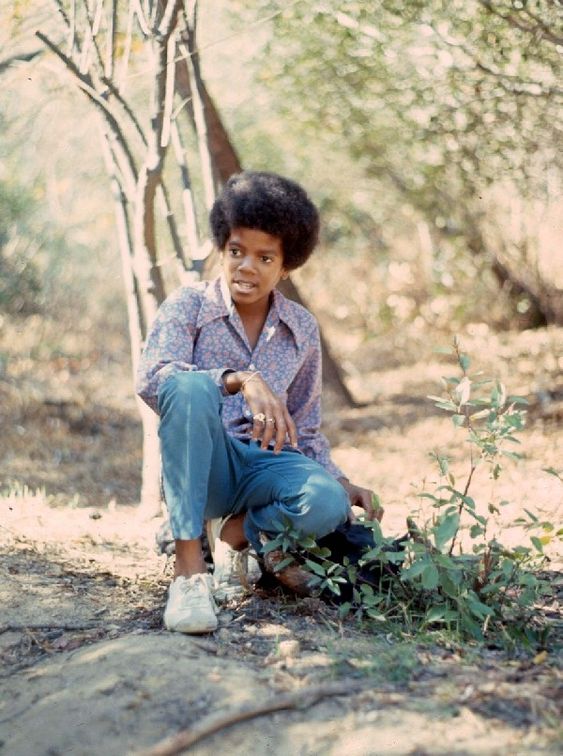
"Oh yeah, Joe was a brute, plenty controlling Mike. In band rehearsal one time before a show, Joe wanted Michael to execute a dance step a certain way. But Michael did the move his way. And Joe smacked Michael so hard across the face. Michael fell backwards and hit the floor with a thud. "Now, you do it the way I told you to! You hear me?" He was hollering at him. Didn't care I was there."
Johnny Jackson, original Jackson Five Drummer, a Jackson but of no relation to the family
Michael Jackson Birthplace - Childhood Hometown Tour of Gary Indiana
When Michael Jackson was born (pre Civil Rights), black people could not use the same bathroom, water fountain or restaurants as whites. They had to sit in the back of a bus. MJ was very poor & a family of 11 had to sleep in a small house with 2 beds. Normal to share a bed. pic.twitter.com/LfDmqzALsf
— Keya Morgan (@KeyaMorgan) March 22, 2019
Home in which Michael Jackson has grown resists amidst ghost town ruins.
The small white house with impeccable lawn, on the corner of Jackson and Jackson Family streets, draws people from all over the world to the American city of Gary, Indiana. There are sculptures of children playing, flowers at the gate and messages written by fans on the sidewalk bricks.
After all, it was here that it all began for Michael Jackson and his brothers Jackie, Tito, Jermaine and Marlon, who rehearsed for hours in the tight room before their performances at local schools, shops and bars. But while the house is relatively well cared for, the rest of Gary remains in ruins, almost like a ghost town.
Gary, 47 km from Chicago, was a city of the future in the 1920s, with the advancement of the steel industry and its various steel mills, to become "murder capital" in the 1990s. Since the 1960s, it has lost almost 60% of its population with the closure of factories and decline of the sector. Today, there are about 75 thousand inhabitants and many empty streets.
Uncultivated land is interspersed with buildings that seem about to collapse, such as the hospital where Jackson and his brothers were born, St. Mary's Mercy. Closed since 1995, it is now a stage for ghost-hunter shows and looks more like the Thriller video clip.
The Mister Lucky's Lounge bar is also deserted, protected by a fence and the windows covered by wooden signs. An ad on the outside warns: "home of the first performance of the Jackson 5".
"They started singing here in 1964. Five sets a night, six shows a week ," Patriarch Joe Jackson (1928-2018) told a local newspaper in 2011 when he visited the city with matriarch Katherine.
Ten years ago, new owners of Mister Lucky's Lounge promised to rebuild the space and sell the building's red bricks. Plans never went off paper.
Garrett Elementary School, where the Jacksons learned ABC, is two blocks from the residence. Today a decaying, empty building was where Michael made his first performance, at age 5, with the song "Climb Every Mountain".
Not even the house at 2,300 Jackson Street passed unscathed from the city's decline. A tribute in granite installed in the garden, with a photo of Michael Jackson dancing on tiptoe, was stolen a few years ago.
Purchased by the Jackson couple in 1950, the place is owned by the family, who moved to a mansion in California in 1969. That year, the Jackson 5 group had signed a contract with Motown, Detroit, 400 km from Gary. Michael was ten years old.
With only two bedrooms and a bathroom in the house, Michael slept in a room with his four siblings crammed into bunks while the three sisters shared the room. It is not possible to visit inside, nor to circulate in the garden, which has deer sculptures and three children.
In 2013, La Toya returned to her residence with her mother for a vigil on her brother's birthday, killed in 2009. "But how small, it looks like a toy house!" She says as she walks into the living room on her reality show show. "How did we all eat together in this tiny kitchen?" She asks her mother. "Because I remember, we always had dinner together."
Fernanda Ezabella, Folhapress
Growing Up And It´s Pains
"Because I think every child star suffers through this period because you're not the cute and charming child that you were. You start to grow, and they want to keep you little forever. "
"Yes, and I had pimples so badly it used to make me so shy. I used not to look at myself. I'd hide my face in the dark, I wouldn't want to look in the mirror, and my father teased me and I just hated it and I cried every day."
Because show business and my career were my life, the biggest personal struggle I had to face during those teenage years did not involve the recording studios or my stage performance. In those days, the biggest struggle was right there in my mirror. To a great degree, my identity as a person was tied to my identity as a celebrity.
My appearance began to really change when I was about fourteen. I grew quite a bit in height. People who didn't know me would come into a room expecting to be introduced to cute little Michael Jackson and they'd walk right past me. I would say, "I'm Michael," and they would look doubtful. Michael was a cute little kid: I was a gangly adolescent heading toward five feet ten inches. I was not the person they expected or even wanted to see. Adolescence is hard enough, but imagine having your own natural insecurities about the changes your body is undergoing heightened by the negative reactions of others. They seemed so surprised that I could change, that my body was undergoing the same natural change everyone's does.
It was tough. Everyone had called me cute for a long time, but along with all the other changes, my skin broke out in a terrible case of acne. I looked in the mirror one morning and it was like, "OH NO!" I seemed to have a pimple for every oil gland. And the more I was bothered by it, the worse it got. I didn't realise it then, but my diet of greasy processed food didn't help either.
I became subconsciously scarred by this experience with my skin. I got very shy and became embarrassed to meet people because my complexion was so bad. It really seemed that the more I looked in the mirror, the worse the pimples got. My appearance began to depress me. So I know that a case of acne can have a devastating effect on a person. The effect on me was so bad that it messed up my whole personality. I couldn't look at people when I talked to them. I'd look down, or away. I felt I didn't have anything to be proud of and I didn't even want to go out. I didn't do anything.
My brother Marlon would be covered with pimples and he wouldn't care but I didn't want to see anybody and I didn't want anyone to see my skin in that shape. It makes you wonder about what makes us the way we are, that two brothers could be so different.
I still had our hits records to be proud of, and once I hit the stage, I didn't think about anything else. All that worry was gone. But once I came offstage, there was that mirror to face again.
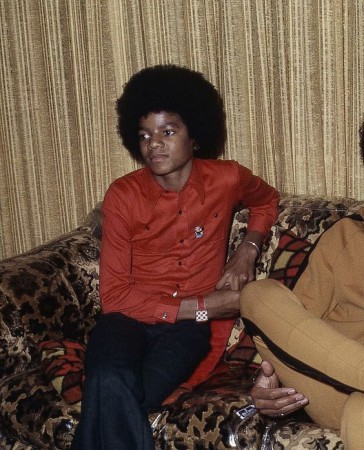 Eventually, things changed. I started feeling differently about my condition. I've learned to change how I think and learned to feel better about myself. Most importantly, I changed my diet. That was the key."
Eventually, things changed. I started feeling differently about my condition. I've learned to change how I think and learned to feel better about myself. Most importantly, I changed my diet. That was the key."
Michael Jackson
"My skin broke out real bad. It was tough — especially after everyone had been calling me cute for such a long time. And the more I worried about it the worse I got.”
“I wore hats, I kept my head down all the time, I wouldn’t look at people when I talked to them. I wouldn’t say nothin’ hardly. It was terrible. I felt I didn’t have anything to be proud of. My success meant nothing.”
“On stage I didn’t think about it, it was gone. But when I came off stage, there it was again.”
Michael Jackson
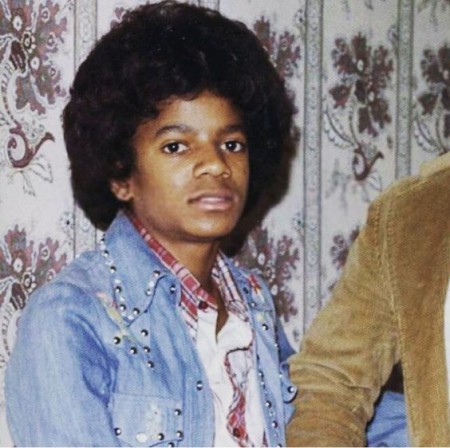
"There was a time I was in an airport - and I will never forget this as long as I live - and there was this lady who said: ´Oh, Jackson 5. Oh my God! Where´s little Michael? Where´s little Michael?´I go: ´Here I am.´ She went: ´Urhhhg! What happened?´ They want you to stay young and little forever. You go through that awkward stage and they want to keep you small."
Michael Jackson in MJ Tapes
Oprah : So I’m wondering for you, being this cute little boy who everybody adored and everybody who comes up to you they’re pulling your cheeks and how cute, how adolescence going through that duck stage where everything’s awkward, and I’m wondering when you started to go through adolescence having been this child superstar, was that a particularly difficult time for you?
Michael : Very. Very, very difficult, yes. Because I think every child star suffers through this period because you’re not the cute and charming child that you were. You start to grow, and they want to keep you little forever.
Oprah : Who’s they?
Michael : The public. And um, nature takes its course.
Oprah : It does?
Michael : Yes, and I had pimples so badly it used to make me so shy, I used not to look at myself, I’d hide my face in the dark, I wouldn’t want to look in the mirror and my father teased me and I just hated it and I cried every day.
Oprah : Your father teased you about your pimples?
Michael : Yes and tell me I’m ugly.
Oprah : Your father would say that?
Michael : Yes he would. Sorry, Joseph.
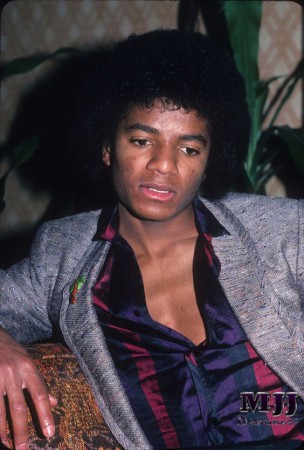
"Adolescence proved awkward for Michael too. He sprouted from just over five feet to five feet ten. Overnight, it seemed, he went from a cute little boy to a gangly teenager. Certain body parts outgrew others, and now Michael was the object of merciless ribbing, especially from his father. “Look at that big nose on your face,” Joseph used to taunt. “I don’t know where you got that from… Bignose.”
LaToya Jackson, Michael´s sister
“When Tito and Jackie really want us mad´they call Jermaine ‘Big Head,’ Marlon ‘Liver lips’ and they call me ‘Big Nose.’"
Bashir: Did your father and your brothers tease you about your appearance, as an adolescent?
MJ: My father did. And some cousins did.
Bashir: What did your father say?
MJ: Oh God. It was pretty embarrassing. They used to tease me real bad about it.
Bashir: It’s cruel, isn’t it?
MJ: Yeah. It used to hurt me. I don’t think he realized how much he would hurt me.
Bashir: What sort of thing would he say?
MJ: He would tease me about how I looked and he would say, “Well, you didn’t get it from my side of the family. Must’ve been from Kate-” Kate, he would always say, meaning my mother. “You didn’t get that from me, you must’ve got that from her.“

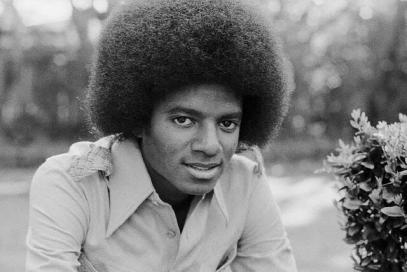
"Puberty is always a potential thief for a child star: it threatens to take away the image your dream is built on. Michael and I both struggled with acne; mine still stubborn and raging as an 18 year old, his rabid and new at 14. A liking for fried food and soda in dressing rooms had caught up with us. Like me, Marlon – who also suffered – accepted the break outs without too much angst, and I didn’t think Michael would be any different. I didn’t appreciate how much he worried about the threat his acne posed to his image because he never really spoke about it. We didn’t really talk about that sort of thing. What “cool” teenage boy does? We Jackson brothers were especially bound that way. We had been taught so much about pride, respect and performance that we had never learned the art of easy communication. We didn’t check in with each other unless it was album talk, tour madness, choreography ideas, basketball plans or girls. So Michael suffered quietly as his features changes and his skin flared up with pimples Indeed he locked it deep inside, except for the odd worry he expressed to Mother.
Michael’s acne was a confusion he wasn’t expecting. And then there was his nose. It widened noticeably and he hated it. In fact, he hated his nose so much that he found it hard to look at himself in the mirror. This wasn’t just typical teenage self consciousness: it became a full blown inferiority complex. The more he looked at himself, the unhappier he felt. In fact, he was painfully brittle during conversations with anyone, always looking down to avoid eye contact.
His comfort zone, as always, was the stage or platform of press interviews, when reporters spoke of how “energized”, “inquisitive” and “ebullient” he was. In performance mod, Michael’s teenage woes were well concealed behind makeup or the performance’s personality he projected. Offstage, our merciless teasing only made matters worse, but teasing is what brothers do, and we all had to go through it. When my acne kicked in, they – including Michael – called me “Bumpy Face” or “Map Face” and Marlon was “Live Lips.” I even received a second label, “Big Head,” because my head was, apparently, too big for my body. So when Michael was called “Big Nose” it was just part of the common initiation into manhood – but he struggled with it. Not that we knew so until much later.
Michael always recalled Joseph using the tease, and that was what hurt him most – hearing it from an adult’s lips and from the man who had driven home the importance of image all our lives. “Hey, Big Nose, come over here,” said Joseph. Michael said nothing and cringed each time."
Jermaine Jackson
